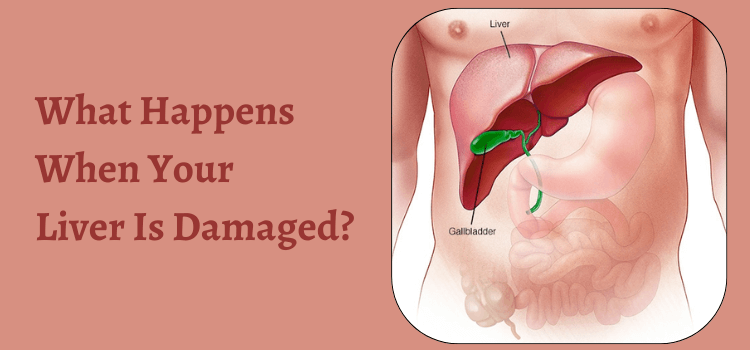
The liver is a vital organ in the body responsible for filtering toxins, producing bile for digestion, and regulating various metabolic processes. However, the liver is also susceptible to damage from a variety of sources, including alcohol, viral infections, and autoimmune disorders. When the liver is damaged, it can lead to a range of serious health issues, including liver failure, cirrhosis, and an increased risk of liver cancer. In this article, we will explore what happens when your liver is damaged, the causes and symptoms of liver damage, and the steps you can take to protect your liver health.
Understanding the Function of the Liver
Before we dive into what happens when the liver is damaged, it’s important to understand the critical functions that the liver performs. The liver is the largest internal organ in the body, located in the upper-right quadrant of the abdomen, and plays a vital role in many essential processes. Firstly, the liver filters toxins and waste products from the blood, ensuring that harmful substances are eliminated from the body. Additionally, the liver produces bile, a substance that aids in the digestion and absorption of fats in the small intestine.
The liver is also responsible for regulating the levels of many hormones and nutrients in the body, including glucose, cholesterol, and iron. It stores and releases glucose to maintain a steady supply of energy for the body’s cells and helps to remove excess cholesterol from the blood.
Moreover, the liver is involved in the synthesis of various proteins, including blood-clotting factors and immune system proteins. It also metabolizes medications, drugs, and alcohol, and helps to remove them from the body. To learn more about the functions of the liver and how to maintain its health, check out this informative article by PureHealth Research
Signs and Symptoms of Liver Damage
When the liver is damaged, it can result in a wide range of signs and symptoms. The severity of these symptoms can vary depending on the extent of the liver damage and the underlying cause of the damage. If you’re concerned about your liver health, it’s important to be aware of the warning signs of liver damage. Check out 14 warning signs of liver damage to learn more about the specific symptoms to look out for. Here are some common signs and symptoms of liver damage:
Jaundice: One of the most recognizable signs of liver damage is yellowing of the skin and eyes, a condition known as jaundice. This occurs when bilirubin, a waste product that is normally processed by the liver, builds up in the body.
Abdominal Pain: Pain in the upper-right quadrant of the abdomen is a common symptom of liver damage. This can be a dull ache or a sharp pain that worsens with movement or pressure.
Swelling: Liver damage can cause fluid to accumulate in the legs and abdomen, leading to swelling and discomfort.
Fatigue: When the liver is damaged, the body may have difficulty breaking down and processing nutrients, leading to feelings of fatigue and weakness.
Nausea and vomiting: Liver damage can cause digestive issues such as nausea, vomiting, and diarrhea.
Changes in appetite and weight: Liver damage can also affect the body’s ability to absorb and process nutrients, leading to changes in appetite and weight loss or gain.
Mental confusion: In severe cases of liver damage, toxins can build up in the blood and affect brain function, leading to confusion, drowsiness, and even coma.
If you are experiencing any of these symptoms, it’s important to speak with your doctor as soon as possible. Early detection and treatment of liver damage can help prevent serious complications and improve your long-term health.
So What Happens When Your Liver Is Damaged?
When the liver is damaged, it can have serious consequences for the body. If left untreated, liver damage can lead to liver failure, a condition where the liver is no longer able to function properly. This can cause a range of complications, including fluid buildup in the abdomen and lungs, bleeding disorders, and brain damage. In severe cases, liver failure can be life-threatening and may require a liver transplant to restore normal liver function. Additionally, liver damage can increase the risk of liver cancer, a serious and often fatal disease. Therefore, it’s important to take steps to protect your liver health and seek medical attention if you are experiencing any signs or symptoms of liver damage. Early detection and treatment can help prevent serious complications and improve your long-term health outcomes.
Healthy Habits: 10 Simple Steps to Protect Your Liver Health
There are many simple steps you can take to protect your liver health and prevent liver damage. Here are ten healthy habits you can adopt to promote liver health:
- Maintain a healthy weight: Obesity is a major risk factor for liver damage, so it’s important to maintain a healthy weight through a balanced diet and regular exercise.
- Eat a healthy diet: A diet that’s high in fruits, vegetables, and whole grains can provide important nutrients that support liver health. Avoid processed foods and limit your intake of sugar, salt, and unhealthy fats.
- Drink alcohol in moderation: Excessive alcohol consumption is a leading cause of liver damage, so it’s important to limit your alcohol intake to no more than one drink per day for women and two drinks per day for men.
- Avoid risky behaviors: Sharing needles or having unprotected sex can increase your risk of contracting hepatitis B or C, both of which can cause liver damage.
- Take medications as directed: Over-the-counter and prescription medications can be harmful to the liver if taken in excess or combined with alcohol. Be sure to take medications only as directed by your doctor.
- Stay hydrated: Drinking plenty of water can help flush toxins out of your body and support liver function.
- Exercise regularly: Regular physical activity can help maintain a healthy weight and promote overall health, including liver health.
- Get vaccinated: Vaccines are available for hepatitis A and B, both of which can cause liver damage. Talk to your doctor to find out if you’re a candidate for these vaccines.
- Manage stress: Chronic stress can have a negative impact on liver health, so it’s important to find ways to manage stress through techniques like meditation, yoga, or therapy.
- Get regular check-ups: Regular check-ups with your doctor can help detect liver damage early and provide treatment options to prevent further damage.
By adopting these healthy habits, you can help protect your liver health and reduce your risk of liver damage.
Conclusion
In conclusion, the liver is a vital organ that performs numerous essential functions, including filtering toxins, producing bile, and regulating hormones and nutrients. However, when the liver is damaged, it can lead to a range of serious health issues, including liver failure and an increased risk of liver cancer. Common signs and symptoms of liver damage include jaundice, abdominal pain, swelling, fatigue, nausea, and mental confusion. If left untreated, liver damage can have severe consequences and may even require a liver transplant. Fortunately, there are steps you can take to protect your liver health, such as maintaining a healthy weight, eating a healthy diet, limiting alcohol consumption, avoiding risky behaviors, and getting regular check-ups. By adopting healthy habits and seeking medical attention if you experience any symptoms of liver damage, you can help promote liver health and reduce your risk of serious complications.






Leave a Reply